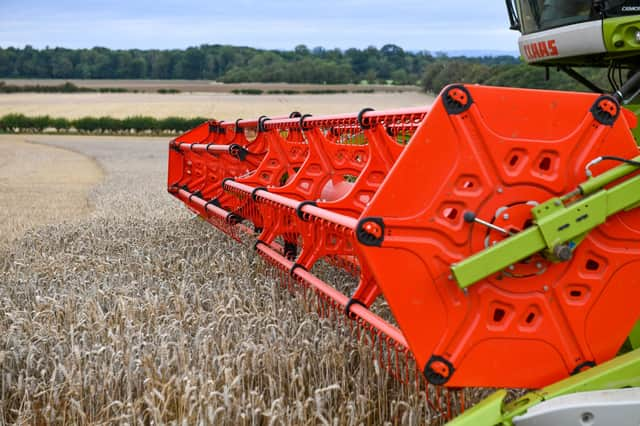Farming: Economist warns grain trade issues may hit returns


Speaking at yesterday’s Arable Scotland event, the SRUC’s senior rural business consultant, Julian Bell, pointed to the effect which the lifting of the US tariffs on malt whisky exports could have on the demand for both malting barley and wheat, along with the steady global recovery from the Covid pandemic.
“So far this year there has been a substantial increase in the usage of wheat by distillers – with an additional 13 per cent or 80,000 tonnes being used to date.” He said that this was partly due to the high price of maize – and with more distillers switching to using home grown wheat he raised the possibility of the Scottish crop regaining the premium payments which it had lost in recent years.
Advertisement
Hide AdAdvertisement
Hide AdBut despite there being less spring barley grown in England, the sharp upturn in Scottish yields in recent years meant that supply of malting barley was likely to remain reasonably high, and he predicted a trade similar to that seen last year.
However he pointed out that a sharp reduction in the number of companies buying Scottish grain could also play an important role in producers’ returns.
And while the consequences for individual businesses caught up in the Inglis administration were significant, the loss of this buyer could have a significant impact across the market, especially coming on top of the recent purchase of WN Lindsay by Simpsons.
“So local issues are set to play a major role in the Scottish market this year.”
He said that collaboration amongst growers and the creation of a farmer owned co-operative grain-buying group would allow farmers to diversify their outlet options. The other approach at farm level would be to diversify the crops grown – which would reduce the industry’s reliance on growing barley.
One of those taking this course was Arbroath farmer and founder of Soil Essentials, Robert Ramsay who has been involved in setting up a co-operative group to grow hemp.
He said that rather than wait for government incentives or grants to start up, the group had decided to grasp the nettle and start growing the crop, focusing on a food variety which was already grown successfully in Finland.
But growing the crop had not been plain sailing – and he criticised some of the regulation surrounding the cultivation of this crop which, he said, had none of the psycho-active substances present in other varieties of hemp.
Advertisement
Hide AdAdvertisement
Hide AdRamsay said that while it was awkward from the point of view of an individual grower not being able to apply to the Home Office until January for the licence required to permit the crop to be grown, from the point of view of setting up a serious co-operative venture with the aim of capturing markets and planning ahead he said this hurdle was an “absolute nonsense”.
Comments
Want to join the conversation? Please or to comment on this article.